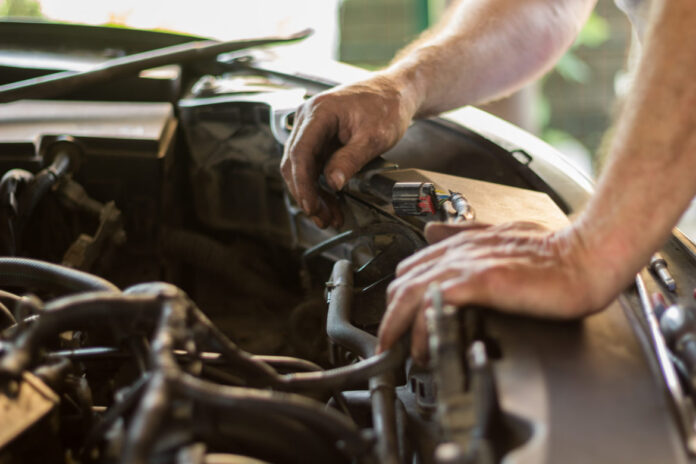Working on a rig comes with its own set of challenges. Every truck owner must be prepared to handle minor issues that arise on the road. Whether you’re an enthusiast looking to save on costs or simply want the satisfaction of keeping your truck in top condition, knowing the essentials can go a long way.
Regular maintenance, coupled with a solid understanding of common issues, can make a big difference in your experience.
But before diving into more detailed advice, let’s lay out some critical points:
Key Points:
- Always prioritize safety before any repair job.
- Familiarize yourself with your truck’s manual.
- Know how to inspect brakes, tires, and fluid levels.
- Pay attention to engine performance.
- Be equipped with essential tools.
- Use quality parts.
- Don’t ignore small signs of potential problems.
Regular Inspection of Truck Parts

Routine inspection is crucial to avoid expensive repairs and breakdowns. Simple tasks like checking tires, brakes, and fluid levels can prevent bigger issues down the line. Always keep an eye on any wear or damage.
Don’t just rely on how the truck feels. Make it a habit to check the engine, hoses, and belts. Doing a thorough inspection allows you to catch potential problems early on.
Need truck parts to replace faulty ones? A trusted source like Ever Trust Parts offers high-quality products to keep your truck running smoothly.
Tire Maintenance and Care
Maintaining proper air pressure in your tires not only extends the life of your tires but also ensures better fuel efficiency. Inspect your tires regularly for signs of wear or punctures. Tread depth is essential for grip, so always ensure your tires have the proper depth. Rotate them frequently to distribute wear evenly across all four wheels.
Never drive on tires with low tread or visible damage. If in doubt, replace them immediately. Uneven tire wear could signal alignment or suspension problems, which should be addressed as soon as possible.
Brake System Checks
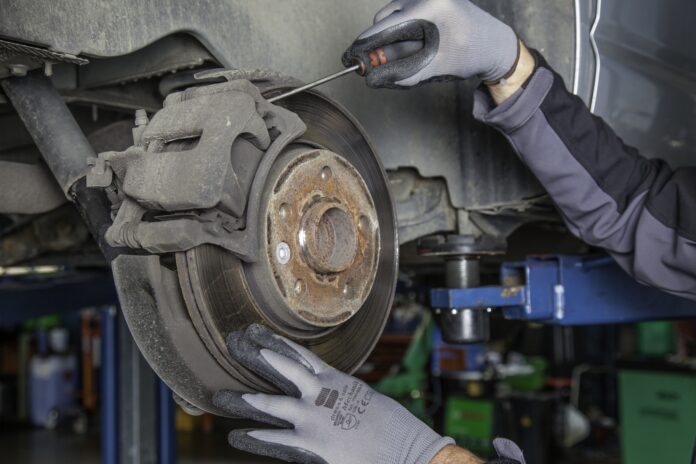
Regular inspections of the brakes ensure you can stop safely, especially when carrying heavy loads. Pay attention to any squeaking or grinding noises when braking.
These sounds indicate that brake pads are worn out and need immediate replacement. Don’t delay on this. Failing to maintain brakes can lead to dangerous situations on the road.
Check the brake fluid level regularly and top it off as needed. Also, inspect brake lines for any signs of leaking. A small issue with the braking system can quickly turn into a significant safety hazard.
Fluid Levels: Engine Oil, Transmission, and Coolant
Checking fluid levels in your truck is essential for keeping it running smoothly. Low or dirty oil can damage the engine. Transmission issues can arise if fluid levels drop too low. Always use the proper type of fluids for your truck, and replace them according to the manufacturer’s recommendations.
Monitor the coolant level closely. An overheated engine can lead to significant damage and costly repairs. Coolant should be checked periodically, especially before long hauls. If the level is too low, top it up with the correct type of coolant. Be mindful of leaks around the radiator or hoses, as these can lead to engine problems.
Engine and Air Filter Maintenance
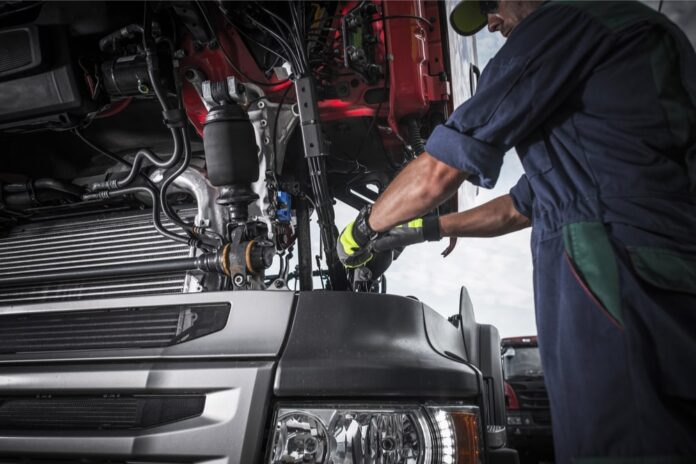
The engine is the heart of your rig. One of the most straightforward tasks you can do yourself is replacing the air filter. A clean filter allows the engine to breathe better and improves fuel efficiency. Neglecting it can lead to poor performance and reduced fuel economy.
Listen to your engine. If it sounds off or struggles, check for obvious issues, such as misfires or unusual noises. Address problems early before they escalate into more complex and costly repairs.
Proper Tools for DIY Enthusiasts
Invest in quality tools that will last you years. A good set includes socket wrenches, torque wrenches, pliers, screwdrivers, and a jack. Having a solid toolbox ensures you’re prepared to tackle any repair on the road. Make sure all your tools are in good condition before starting any work.
Carry a reliable jack and stand to lift your rig when working underneath. Safety is always the top priority when it comes to any repair, so ensure the truck is securely lifted before beginning work.
Electrical System: Battery and Lights
The electrical system powers the essentials: lights, horn, and other important functions. Regularly inspect the battery for signs of corrosion around the terminals. Keep them clean to ensure a strong connection. If you notice slow engine cranking, it might be time to replace the battery.
Check all the lights on the truck, including headlights, brake lights, and indicators. Replace bulbs when necessary. Always carry spare bulbs and fuses to avoid problems during long trips. Proper lighting ensures not only your visibility but also the safety of others on the road.
Belts and Hoses
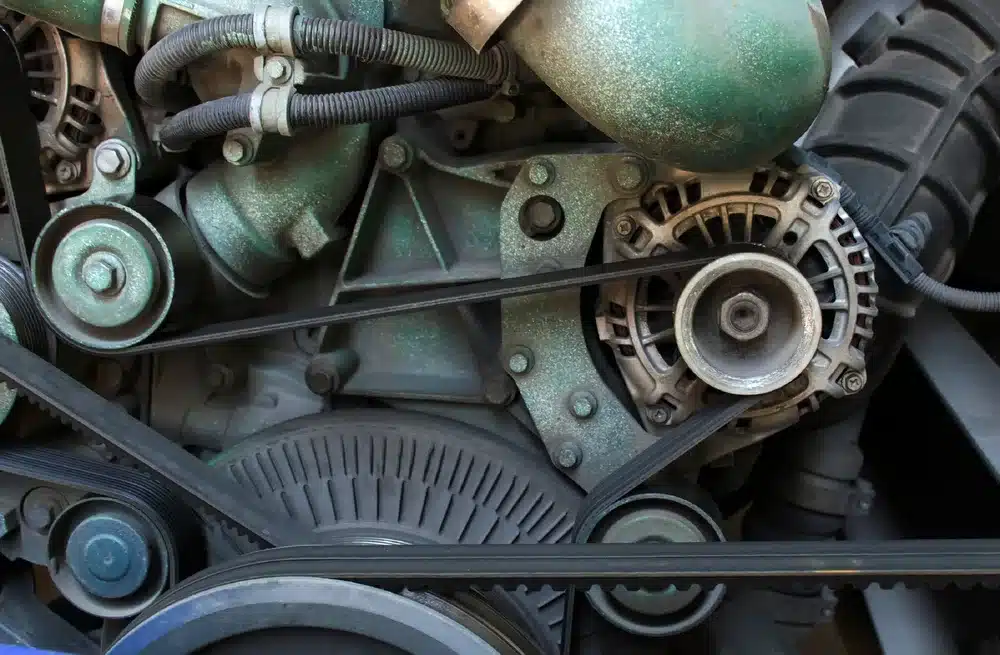
Belts and hoses are critical for the smooth operation of various systems in the truck. Over time, belts can wear out, fray, or snap, leading to engine problems. Inspect all belts for signs of wear. If they feel loose or appear damaged, replace them immediately.
Hoses carry vital fluids around the engine. A cracked or leaking hose can cause the engine to overheat or run inefficiently. Periodically check all hoses for any signs of damage, and replace them as needed to prevent major engine issues.
Suspension and Alignment
Your truck’s suspension absorbs the impact of the road and keeps the ride smooth. Regular checks on shocks, struts, and springs ensure that everything remains in good working order. Worn suspension parts can cause the rig to sag or sway, leading to uneven tire wear and compromised handling.
If the truck pulls to one side when driving, it may be due to poor alignment. Address this immediately. Not only does it affect the ride, but it also wears out tires faster. Regular alignment checks ensure the rig remains stable and performs well on the road.
Exhaust System Check
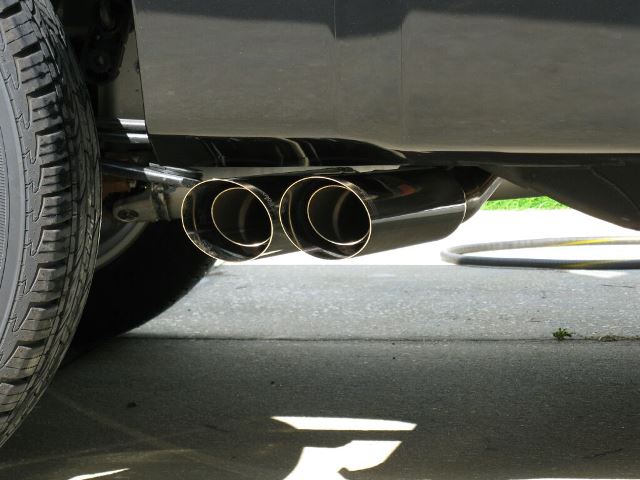
Your exhaust system plays a significant role in the truck’s overall performance. It reduces noise, directs fumes away from passengers, and improves fuel efficiency. A leaking exhaust system can cause issues like poor fuel economy or excessive noise. Inspect the system regularly for rust, cracks, or holes. Any damage should be repaired or replaced to maintain efficiency.
Final Thought
Maintaining a rig involves staying on top of routine inspections and addressing minor issues before they escalate. Familiarize yourself with the different components and know the right tools for the job. Always prioritize safety and quality parts when working on your truck. Following these tips will not only save you money but also extend the lifespan of your rig.
Taking a hands-on approach to maintenance can be highly rewarding. By mastering these essential repair skills, you can confidently handle any challenges that come your way.
